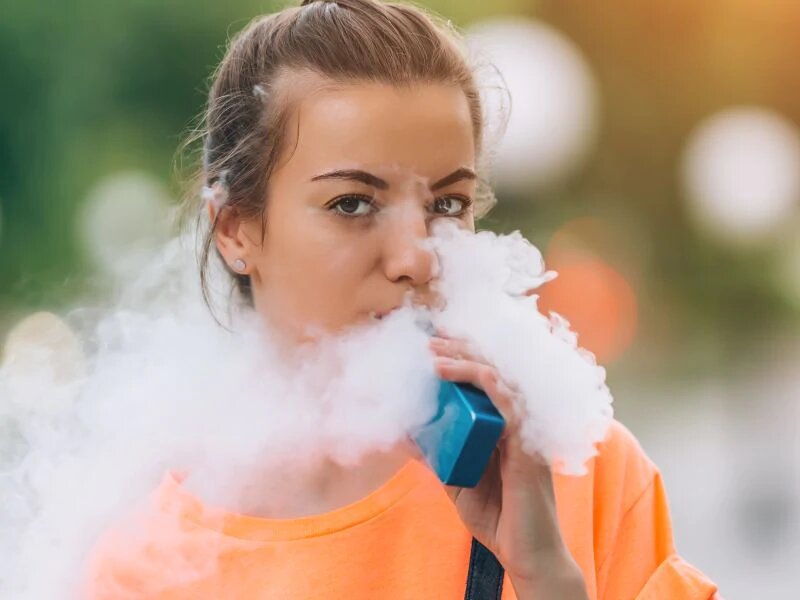Smoking rates in the United States are on a steady decline, yet vaping continues to be a prevalent trend among young adults. Despite its popularity, vaping poses significant health risks, including cardiovascular disease and chronic obstructive pulmonary disease (COPD). A groundbreaking study from the RVO Health Center for Wellbeing Research reveals promising results: nearly half of young adults successfully quit vaping within three months using a quitline-based intervention.

This comprehensive article delves into the study’s findings, explores the role of quitlines in vaping cessation, and provides actionable resources for individuals looking to quit vaping for good.
The Rise of Vaping Among Young Adults
In recent years, e-cigarettes have surged in popularity, becoming the most commonly used tobacco product among youth. Former U.S. Surgeon General Jerome M. Adams declared vaping among youth and young adults an epidemic in 2018. The allure of vaping, driven by flavors and high nicotine content, has led to widespread use. However, the long-term effects remain largely unknown, sparking concern among health professionals.
Quitline-Based Intervention: A Game Changer for Vaping Cessation
A study funded by the American Heart Association and published in the American Journal of Preventative Medicine examined the effectiveness of quitline interventions in helping young adults quit vaping. This randomized trial involved 981 participants aged 18-24 who vaped regularly (defined as 20 or more days in the past month). Researchers divided participants into four groups, each receiving different combinations of coaching calls, nicotine replacement therapy (NRT), and a mobile health (mHealth) program.
Key Findings:
- High Quit Rates: Nearly 45% of participants abstained from vaping after three months.
- Effectiveness of NRT: Nicotine replacement therapy proved to be a promising tool for cessation.
- Satisfaction with Coaching: Participants reported high satisfaction with coaching calls, which contributed significantly to success rates.
How Quitlines Work
Quitlines are free, confidential telephone services that provide guidance, counseling, and resources to individuals looking to quit smoking or vaping. Available in every U.S. state, quitlines have been a cornerstone of smoking cessation for decades.
Features of Quitlines:
- Personalized Support: Quitline coaches assess tobacco use history, triggers, and barriers to quitting.
- Free Resources: Many quitlines offer free NRT, such as patches and gum.
- Accessibility: Services are scalable and cost-effective, reaching a broad audience.
The Study’s Intervention Strategies
The study’s interventions incorporated various components to support participants in their cessation journey:
1. Coaching Calls
Quitline coaching calls followed a structured protocol based on social cognitive theory and clinical practice guidelines. Coaches helped participants identify their triggers and strengths while providing tailored quitting strategies.
2. Nicotine Replacement Therapy (NRT)
Participants randomized to receive NRT were mailed nicotine patches or gum. NRT helps reduce withdrawal symptoms, making it easier for individuals to quit.
3. Mobile Health (mHealth) Program
An mHealth program delivered via text message offered additional support, including links to quit resources such as videos, podcasts, and online education.
Groups in the Study:
- Coaching calls only
- Coaching calls with mHealth
- Coaching calls with NRT
- Coaching calls with both mHealth and NRT
Why Quitlines Are Effective
Quitlines’ success lies in their ability to provide individualized support and accessible resources. The study found that coaching calls alone were highly effective, even serving as a control intervention. Participants appreciated the personalized attention and expert guidance, which helped them navigate the challenges of quitting vaping.
Additional Insights:
- Awareness of NRT: Many participants were already familiar with NRT, and some sought it out independently.
- Safe and Acceptable: NRT was deemed safe, with no unusual side effects reported.
Resources to Help You Quit Vaping
If you or someone you know is looking to quit vaping, several resources are available:
- Quitlines: Call 1-800-QUIT-NOW for free, confidential support.
- Smokefree.gov: Offers tools and resources to quit smoking and vaping.
- We Are Truth: A youth-oriented platform providing vaping cessation resources.
- Live Vape Free: A program designed to help individuals quit vaping.
- Become an Ex: A supportive community for those seeking to quit.
Looking Ahead: Future Research and Expansion
The study’s findings highlight the need for further research to refine and expand quitline-based interventions. Researchers aim to:
- Identify the most effective components of quitline interventions.
- Expand eligibility to include individuals who use multiple tobacco products.
- Explore scalable solutions like mHealth programs for broader reach.
By understanding what works best, public health resources can be optimized to help more individuals quit vaping.
Frequently Asked Questions (FAQs)
1. What is a quitline, and how does it help with vaping cessation? Quitlines are confidential telephone services that offer counseling, guidance, and resources to help individuals quit smoking or vaping. They provide personalized support and often include free NRT.
2. Is nicotine replacement therapy (NRT) safe for young adults? Yes, NRT is considered safe for young adults. It helps reduce withdrawal symptoms and cravings, making it easier to quit vaping or smoking.
3. How effective are quitlines for quitting vaping? Studies show that quitlines are highly effective, with nearly 45% of young adults successfully quitting vaping within three months using a quitline-based intervention.
4. Are there free resources available to help me quit vaping? Yes, resources like 1-800-QUIT-NOW, Smokefree.gov, and Live Vape Free offer free support and tools for vaping cessation.
5. What are the health risks associated with vaping? Vaping is linked to potential health risks, including cardiovascular disease and chronic obstructive pulmonary disease (COPD). The long-term effects are still being studied.




